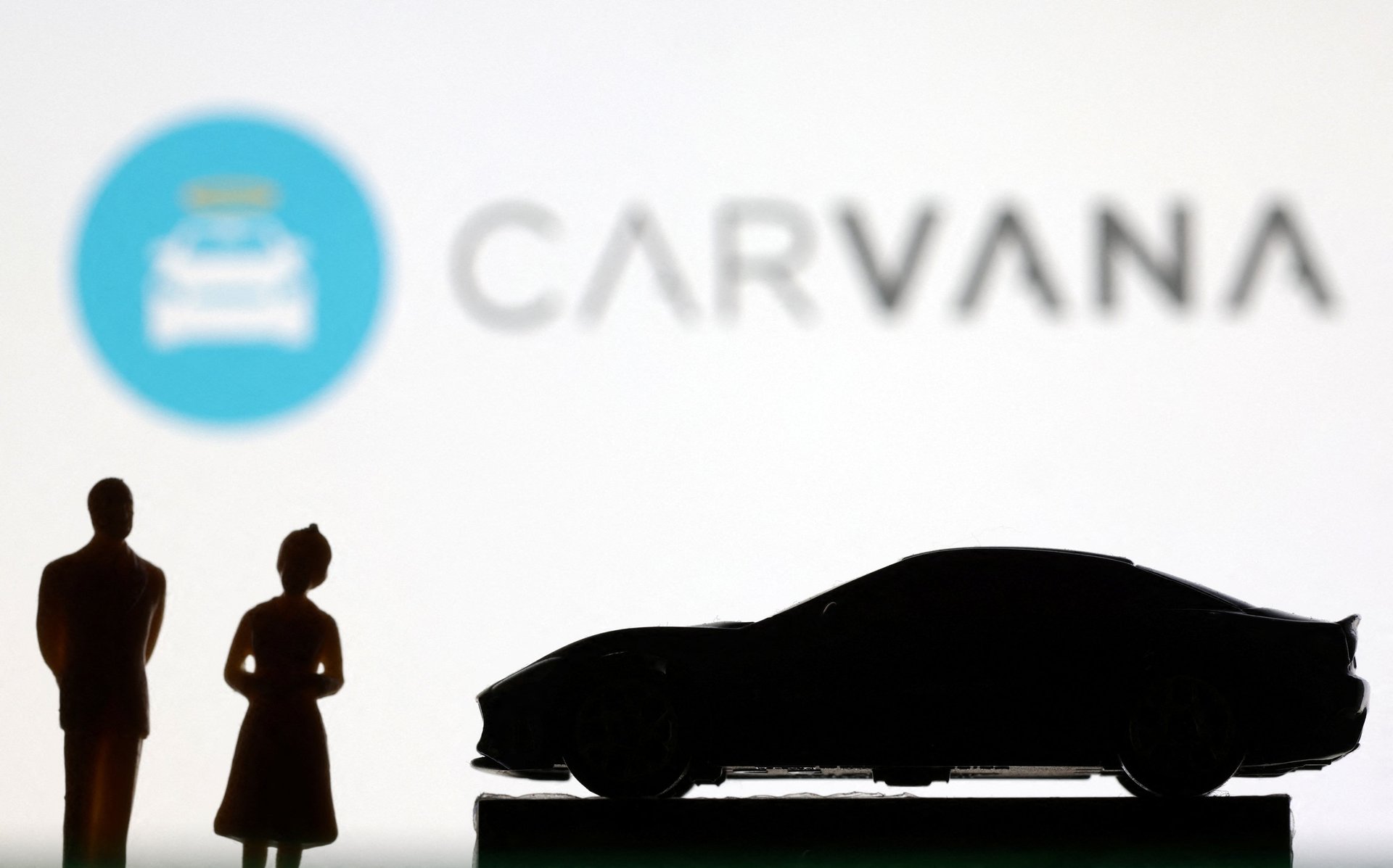Carvana stock skyrockets 37% after the used car company reported record profits
Carvana stock hit its highest point in roughly two years

Carvana stock hit its highest level in years on Thursday after the used car retailer reported record results and made a profit last quarter.
Suggested Reading
The Tempe, Arizona-based company’s stock lurched up more than 37% in pre-market trading to $120 per share. The last time Carvana shares were worth that much was April 2022, before they continued a steady decline. In December of that year, Carvana stock dropped as low as $4 per share as fears of bankruptcy loomed over investors.
Related Content
But Carvana on Wednesday continued its push past that dark period of its history, reporting earnings that blew past Wall Street’s expectations.
The company recorded $3.06 billion in revenue, compared to analysts’ expected $2.69 billion. Net income hit $49 million, up from a $286 million loss during the January to March period in 2023. Earnings before interest, taxes, depreciation and amortization hit $235 million, up from a $24 million loss a year prior, marking a record for the company.
Plus, Carvana’s gross profit per unit — a metric closely watched by investors — was $6,432, up from $4,303 in 2023. The company sold 81,878 cars last quarter, up 16% from the same time a year earlier.
Carvana said it forecasts a sequential increase in the year-over-year growth rate for units sold and adjusted earnings. It also expects to “comfortably deliver” on its previous forecast and deliver year-over-year growth in 2024 for adjusted earnings and units sold.
“Competitively, we sit in a better position that we have at any point in our history,” CEO and chairman Ernie Garcia told investors Wednesday, adding that “the last few years have resoundingly proven just how difficult it is to build a business this complex, to drive it to scale, to achieve strong unit economics and to deliver high-quality customer experiences.”
The CEO touted the dramatic push to turn the company around, highlighting the reconditioning of vehicles for sale and efficiency measures.
Through restructuring efforts launched in 2022, Carvana has taken $1.1 billion of annualized expenses out of the business. That involved laying off more than 4,000 workers, embracing new artificial intelligence systems for pricing and sales, and a new “Carli” software platform for end-to-end processing of vehicle reconditioning.
“We have every intention of continuing to make progress and don’t expect to return to a situation like that,” Garcia told CNBC in February. “I think the pressure of the last two years caused us to really focus on the most important things.”